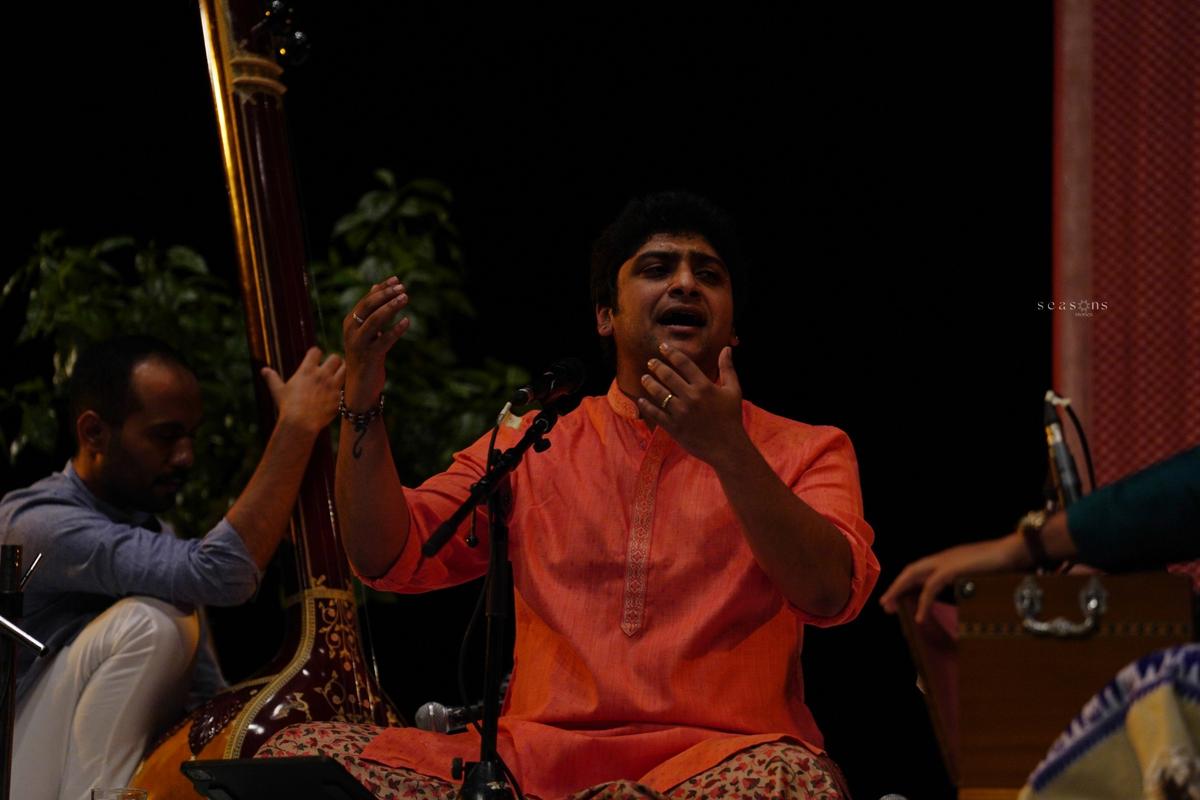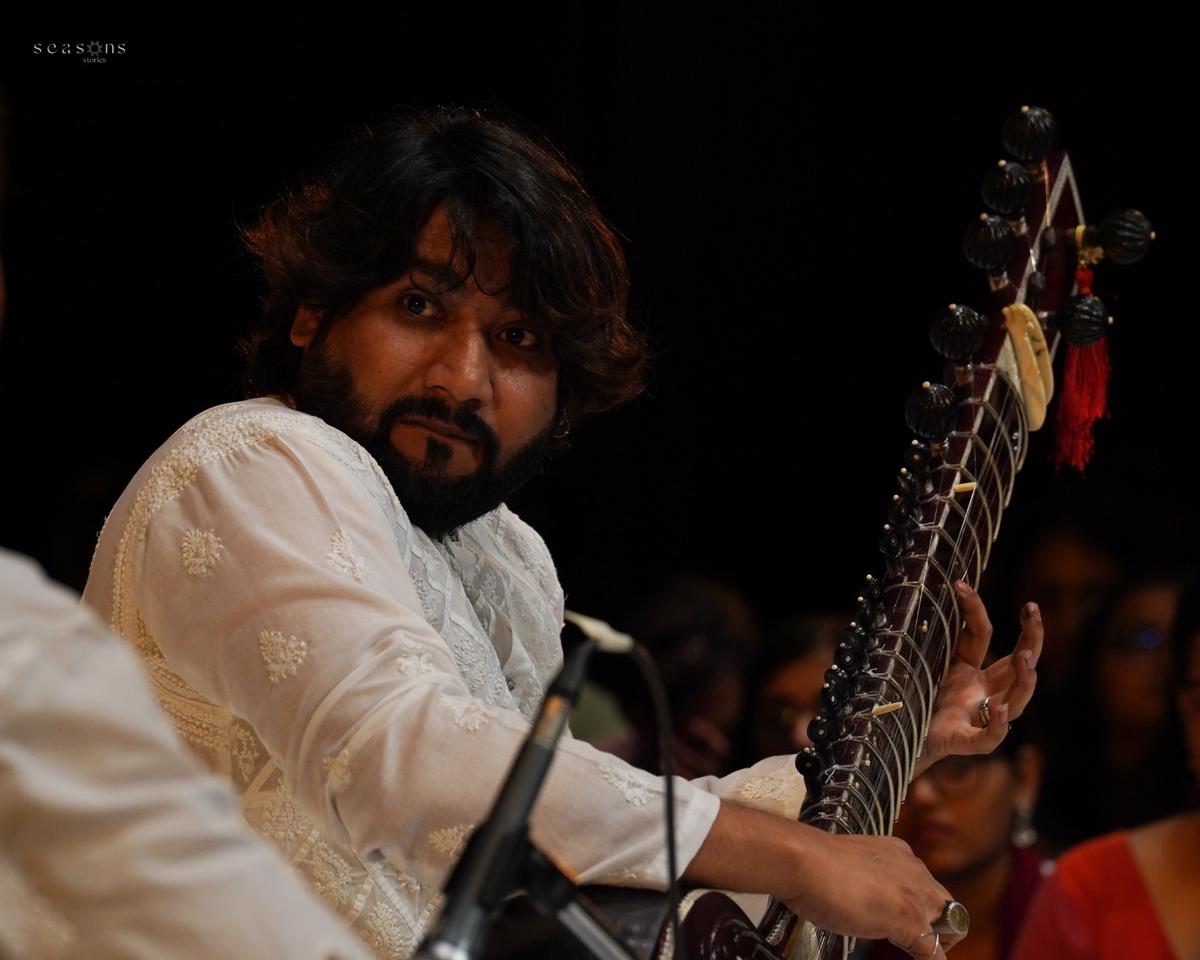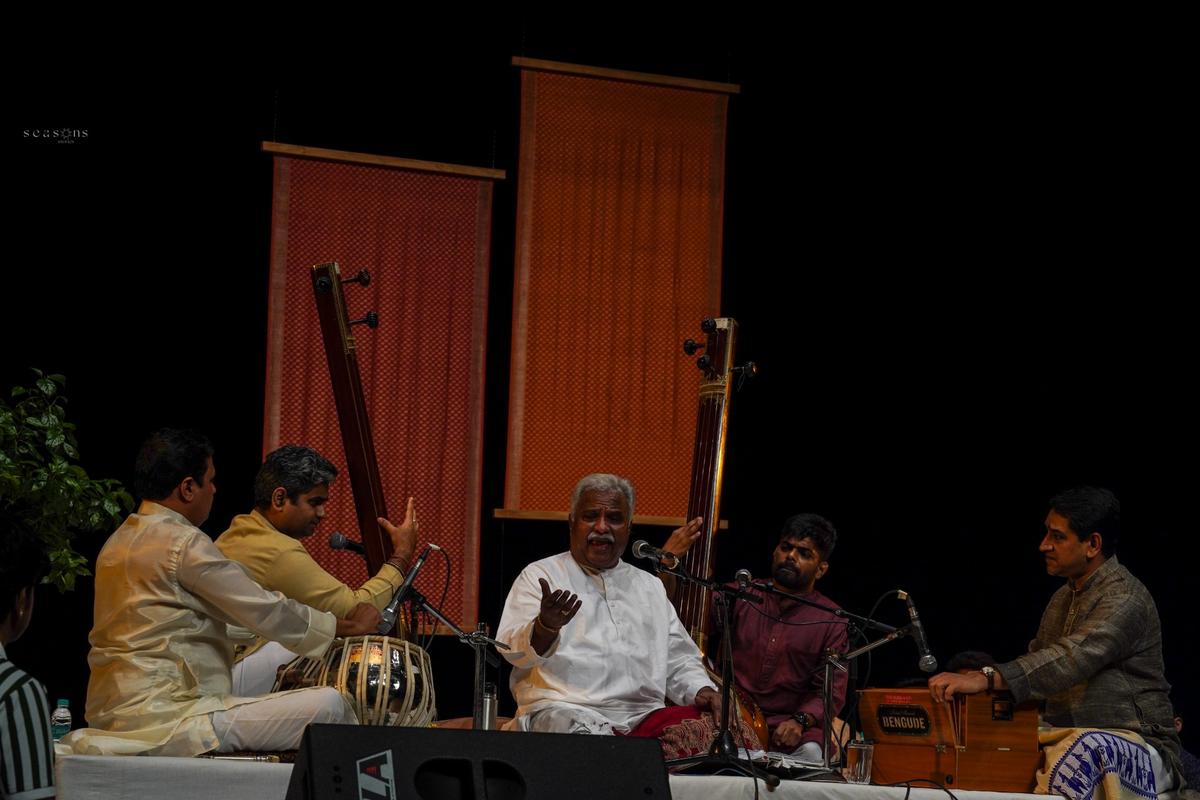Pandit Vishnu Digamber Jayanti Music Festival, held every year in Delhi’s cultural calendar, has always been an eagerly awaited event. One of the reasons for this is the excellent selection of artists. This year, the young musicians who have always been a part of this festival made their mark in the event. Despite the limited time, they impressed everyone with their performance.
The festival began with a Sarod-Sitar Jugalbandi between Kolkata resident Kaushik Mukherjee and Kalyanjit Das, artists of the Senia Maihar Gharana. Kaushik is currently learning from Pt. Tejendra Narayan Majumdar, while Kalyanjit is learning from his father Pt. Kushal Das. The Alaap in Raag Pooriya Kalyan was calming and was presented in a systematic and slow manner. In this section, the elder of the duo, Kaushik, played more impressively and gradually entered the higher octave from the bass Kharaj. In the Jor section, Kalyanjit impressed with his gamak-filled verses. Pt. Ram Kumar Mishra, seated between the two, provided excellent accompaniment. Kalyanjit’s clarity of diction and taans and Kaushik’s rhythm were remarkable
Bhuvanesh Komkali | Photo Credit: Special Arrangement
The evening concluded with a recital by Bhuvanesh Komkali. His Indore-based disciple Varshita Bansiwal accompanied him on the vocals. Shambhunath Bhattacharya from Delhi was on the tabla and Abhishek Shinkar on the harmonium. Bhuvanesh began with Raag Nand, a short raga that he had cleverly carved out from other similar ragas. The vilambit ektaal khayal was a traditional composition – ‘Govind been bajaaye’. His leisurely performance was followed by a fast teen taal khayal composed by his grandfather Pandit Kumar Gandharva. He then played Jaladhar Basanti composed by his grandfather. This was followed by Raag Basant. He concluded with a bhajan by Kabir. Bhuvanesh sings with an infectious passion as always; it is hard not to be carried along on his musical journey.
The next evening began with a concert by Siddharth Belmanu from Bengaluru, a disciple of Pandit Vinayak Toravi. His performance was excellent in terms of content and presentation. He sang a composition ‘Karim Naam Tero’ in Raga Miyan Malhar, which is associated with Pandit Bhimsen Joshi, a stalwart of the Kirana Gharana to which Siddharth belongs. AdaSiddharth’s succinct delivery was impressive and set the tone for the concert. Gamak, good aakar taan, soulful meend, clear diction, open-throated singing, a hint of the dramatic, a good sense of proportion – he has it all. ‘Bijuri Chamke, Baras Megh’ was his drut khayal, followed by ‘Ati drut ek taal’ composition.

Siddharth Belmannu Photo Credit: Special Arrangement
On the tabla was Pranav Milind Gurav from Pune, whose playing was soulful. Vinay Mishra (harmonium) was excellent as always. Siddharth sang ‘Kahe ko ab tum aaye’ in Sohni. The influence of Agra’s singing style was clearly visible in his vision of the raga. His ‘Pukaar’ reminds one of Ustad Faiyaz Khan. His breath control in the tarana composed by his guru Pandit Vinayak Torvi added a tinge of drama to his singing. He concluded with a thumri ‘Ab to piya manat nahi’ in Kaafi, ending with the notes of Miyan ki mahar, which beautifully connects with his opening.
Shashank played only the long bass flute | Photo Credit: Special Arrangement
The evening concluded with a flute recital by Shashank Subramaniam. He was accompanied by Patri Sathish on the mridangam and L. Ramakrishnan on the violin. Shashank has performed at this festival many times and dedicated his concert to his guru of Hindustani music, Pandit Jasraj, whose birth anniversary it was. Shashank understands the expectations of the audience. He played only the long bass flute which is preferred by the audience in North India. Some people find the sound of the short flute shrill.
He began with a short erotic varnam, a composition by Tyagaraja in Raga Hansanad. It came as a warm-up piece. He moved on to Raga Vagdeshwari, a beautiful combination of Jog and Khamacha ragas, to explain it in the context of the Hindustani music tradition. After Raga Tanam Pallavi, Shashank moved on to his own compositions with the accompanists’ brilliant support. He concluded with a Tillana in Sindhu Bhairavi, which he composed himself. His concert was lyrical and exciting.

Adnan Khan has trained under his father Ustad Saeed Khan and singer Ustad Mashkoor Ali Khan. Photo Credit: Special Arrangement
The next morning began with Miyan ki Todi by Adnan Khan from Delhi, a disciple of his father Ustad Saeed Khan of the Delhi gharana and Ustad Mashkoor Ali Khan, a singer of the Kirana gharana. Adnan’s delicate touch as well as his mature understanding of the instrument, a result of years of intense riyaaz, makes him a fine artist. His elaborate ‘Alaap Jor Jhala’ was extremely satisfying; two of his compositions were somewhat similar in construction. Adnan’s ‘Chhoot’ taans were executed superbly. He was accompanied on the tabla by Delhi gharana artist Babar Latif Khan, son of the late Ustad Latif Ahmed Khan.

Pt. Venkatesh Kumar | Photo Credit: Special Arrangement
Pandit Venkatesh Kumar concluded the festival with Komal Rishabh Asavari, Deskar and Vrindavani Sarang; all performed brilliantly, all within 20 minutes. This brevity has now become his norm, but it leaves one wanting more. His ‘Thumak Chalat Ramachandra’ was also performed at a faster pace than usual; he concluded with Bhairavi.
Published – September 16, 2024 04:06 PM IST